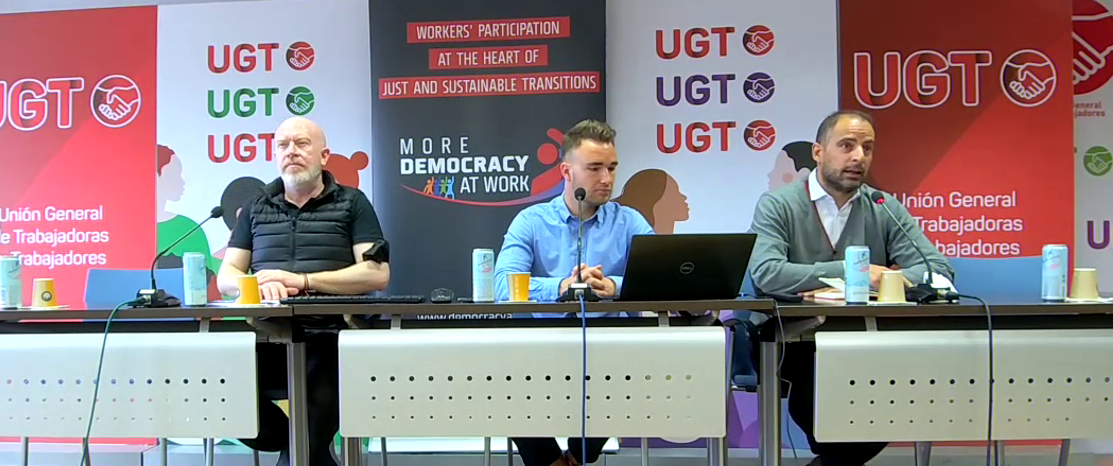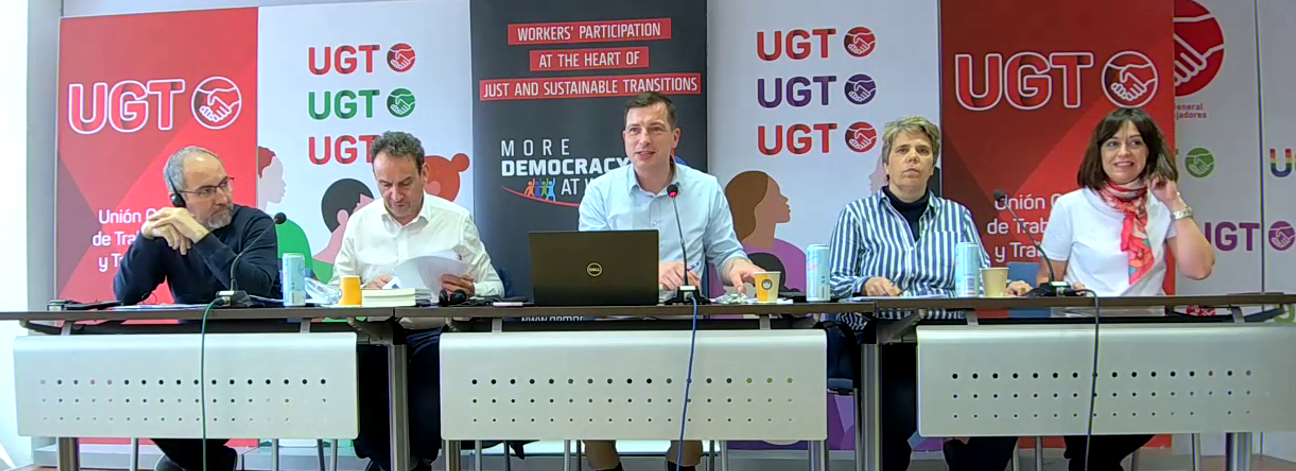First, Sara Lafuente Hernaández from the ETUI gave a introduction to the topic presenting the different forms of BLER in Europe, as well as the examples in Spanish history. Although featured in article 129 of the Spanish Constitution, codetermination has barely been implemented in Spain. Nevertheless, some particular examples of workers’ representatives at board-level exist in some Spanish companies exist, although representatives have mostly a consultative role.
In the first panel, Rafael García Martínez (Adif - CCCO) and Manuel León (Axa - UGT) shared their experiences at company level. The former criticized a common doctrine amongst employers to impede workers’ participation and underlined the need for democratic structures in the workplace. León shared his experiences from the EWC of Axa and underlined that the use of instruments like European works Councils and workers’ participation at European level can be of “strong use” when implemented in the right way.
In the second panel, Iciar Simancas started off with the UGT’s demands, which included amongst others the guarantee of real participation of workers' representatives through equal representation in the company's governing bodies between company and workers' representatives as well as its application in all companies, regardless of their legal form. Afterwards, Daniel García Molino gave some practical insights from his work as board-level representative in ALSTOM. Similar, to the two practitioners before he criticised the abusive use of confidentiality by the employers. Bruno Estrada from the civil society “Plataforma de Democracia económica” underlined the lack of legal basis and Maria Dolores Narváez – Vicepresident of the labour Commission in the Spanish Parliament – assured to “to look into how to implement the article 129 of the Spanish constitution."




